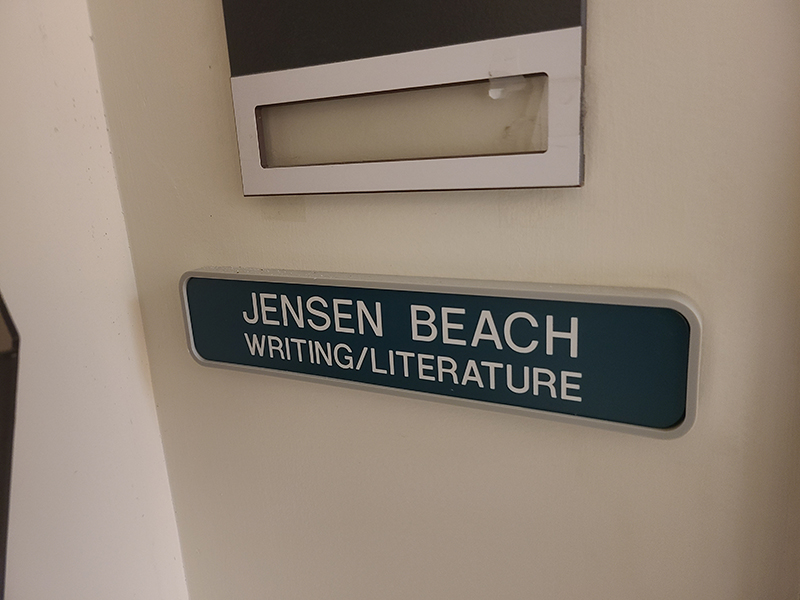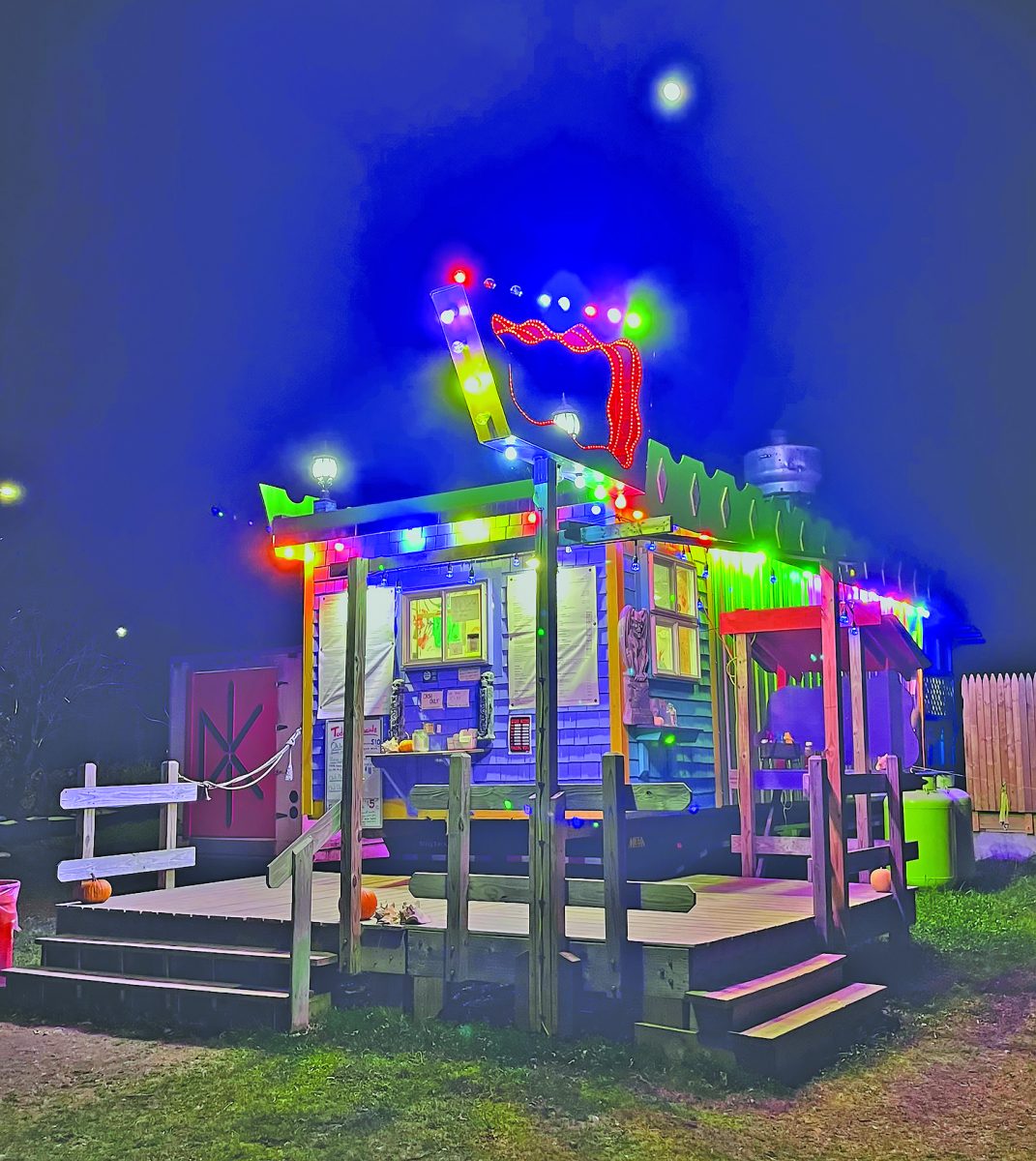What is sustainability?
That was the question asked of the audience at the campus sustainability day address on Wednesday, Oct. 24.
Few attempted to take on the answer of the proposed question, and those who did didn’t seem to have the correct definition. Sustainability, in terms of environmental issues, is the act of not causing harm to the environment or depleting natural resources to support long-term ecological balance.
The campus sustainability address, held in the Ellsworth room of the WLLC, was to help raise awareness of the steps being made, as well as the ones that will be made, to make Johnson State College’s campus a greener place.
Among the speakers at the address were Sodexo General Manager Tom Fondakowski and JSC’s Green Door advisor for the VSC Green Revolving Door Fund, Edmund Harris. Harris shared his brief but direct and informational speech before Fondakowski took the floor.
“First and foremost it is essential to find out what forms of energy we are using now on our campus,”Harris said. “This knowledge will allow us to evaluate our options, help develop practical energy plans, and successfully implement solutions for reducing our dependence on imported fossil fuels.”
Harris noted the agenda he proposed was extensive and would no doubt take a while to complete, although the goals are realistic.
“We need to start in the following order: promoting conservation, instituting energy efficiency, and implementing renewable energy when the necessary funds are available,” Harris said. The objectives discussed are all included in his Energy Action Plan that he has created for JSC’s future.
“I believe it is time for Johnson State College to become leaders not followers,” he said. “I believe we can make a difference.”
Tom Fondakowski followed Harris’ speech with some insight on how he would like to assist Harris in constructing better energy plans for JSC, starting with the dining services. Fondakowski’s number one focus of conserving energy and lowering JSC’s kitchen expenses is to reduce the amount of water usage.
He said that in one hour, the dishwasher in the kitchen goes through 165 gallons of water. He would like to see that number drop; to decrease the overall number of gallons of water used in the kitchen, the spout where unfinished drinks are poured into has been shut off, and the salavator (where food is rinsed into composting bins) is only being turned on when in use, instead of being left on all day.
Another concern Fondakowski has about the dining services is the composting process. First he made it clear what the difference is between recycling and composting; recyclables take over a year to decompose, while compostables take less than a year to do the same.
Some of the changes made in the dining hall already were little things such as switching to compostable napkins, purchasing $4000 in Ecoware products for students to take meals on the go, dropping the number of box meals from 400 to 0 used in athletics, and discontinuing the use of paper dishware for late night.
Fondakowski also touched on the need for increasing the amount of local foods served in meals. His sights are set on getting products from local places like Cabot, Grafton Cheese, UVM, Cold Hollow, and VTC.
He said the only problem that complicates this goal are liability policies, which are very expensive.
Fortunately, Black River Produce has stepped in and covered a good majority of these liability expenses, though only so much insurance can be provided.
Finally, Fondakowski stressed the importance of communication as the college moves forward towards a more sustainable energy profile.
“I think we need to open up the lines of communication between our staff, faculty, students, and contractors in general about how we’re utilizing energy,” he said. “In order for JSC to be a greener place, it will take the entire JSC community to come together to make a difference, and to compare with the conditions defined in the word “sustainability”.




